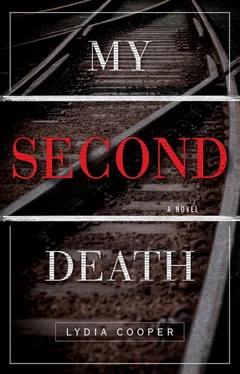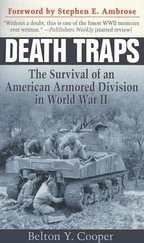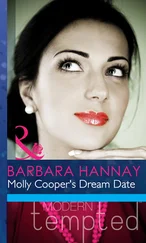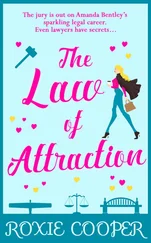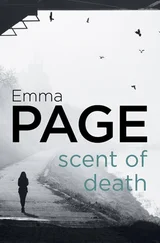My younger brother, Stephen, is an honor roll student at a preppy mostly Jewish high school where he pretends that his Jewish genes outweigh his Presbyterian ones. Chameleon-like, he becomes Presbyterian when my mother forces him to attend church. He is an atheist when he visits our father at the university. His cosmology, his colloquialisms, and his convictions switch at the speed of light, adapting mercilessly to his environment. His only constant is a quiet yet determined smile, shining so brightly that no one suspects he has an older sister who lives in the garage behind his house and who, like crude oil drillers, coal factories, and logging companies, has the dubious honor of being a dark catalyst for adaptive genius. I’m not proud of it.
And then there’s me, the middle child. I live in the garage and say “fuck” too much, but I never whine about the rain or the cold, I rarely eat dead animals, and I haven’t killed a man since I was ten.
I park in a gravel lot at the university. The rain has faded and the air is thick with the smell of car exhaust, ozone, and wet soil. Sunlight breaks through mottled shelves of clouds, striated bands of gold making the packed rows of cars glimmer like subaqueous stones.
The glass doors of the humanities building open onto a hallway packed with hurrying students. Eddies of voices, fragmented shouts, giggles, curses, and the swirling smells of bubblegum and chalk. Speckled linoleum flickers under the glare of fluorescent runner lights. Nausea bubbles like rotten sewage in my gut.
Elbow tilted out, chin ducked, I brandish my thermos in front of my face and press through the crowded hallway to my classroom. The students have already arrived. They sprawl behind tiny pressboard desks and watch the doorway with sullen eyes. A few of them have fixed their gazes fervently on the second hand ticking round the clock that hangs over the teacher’s podium.
I am out of breath. I dump my backpack on the seat behind the podium, turn to the chalkboard and scrabble along the metal rim for a piece of chalk. The chalk squeaks. Acrasia, Amavia, Ruddymane .
I turn around and dust my fingers on my legs. Papers rustle. A pen scratches. I face a gulf of four feet and then rows of blank, expressionless eyes.
“Okay, so we’ve got through Book Two of The Faerie Queen ,” I say. “We’re going to talk about Ruddymane today. Anyone want to start us off by defining anagogical allegory?”
A student leans over and whispers. Quiet snickers.
I suck down a mouthful of coffee, then set the thermos under the teacher’s podium. The bitterness sticks to teeth, my tongue. The clock ticks in the silence.
“All right. Pop quiz.”
I grin. They hate this. The hatred sizzles on their post-adolescent faces. They take their heavy textbooks and shove them back into backpacks. The multiple thuds of book spines hitting the floor sounds like a flock of dead birds falling from the sky.
A hand rises in the back.
“Yes, in the back. Question?”
“Are these terms going to be on the exam?”
I lean against the chalkboard. “Let’s get one thing straight, Mr. Back Row. I get paid a stipend to teach this class while I work on my dissertation. I am here because I want lots of letters after my name, letters that mean I don’t have to talk to people, or spend any more time breathing their air than I have to. You are here because you want a degree that means you won’t have to flip burgers the rest of your life. But with the state of the economy right now you will likely settle for some minimum-wage government job, like, say, delivering mail, that will provide you with a modicum of security and health insurance. Disappointed by your life work, you will drink yourself into a coma every night in front of American Idol reruns. You will sink into a stupor from which you will be barely aware of your own insignificance in the world, far less the insignificance of esoteric terminology you failed to memorize in your sophomore-level literature class at college. So even if I say yes, they are on the exam, would it make a difference?”
Twenty-five pairs of doughy lidded eyes, twenty-five moist, slack mouths. Silence. The guttural tick of the clock.
A hand from the back row.
“So, you’re saying they will be on the exam?”
After class, I cram the heavy volume of Spenser’s collected works into my bag and go upstairs to the fourth floor where the graduate students work in a windowless room overstocked with broken swivel chairs and outdated computer monitors. In addition to teaching one class a semester, we are required to hold six office hours per week so that our students can come to us with complaints or for help understanding course material. I spend an average of six minutes a week in the office, but I rarely get reported for dereliction because my students don’t feel the need to seek my sage advice, and my fellow graduate students do not exactly miss my less-than-sunshiny presence.
The room is almost empty. Two grad students sit at a computer sharing a pair of headphones. The one sitting awkwardly on the arm of the chair leans against the other’s shoulder. They are bobbing their heads back and forth and singing along with some video clip. I’ve seen them do this before. They told me it was “poor man’s karaoke,” but I still don’t get it. I wonder what it would feel like to plant a palm casually on someone’s shoulder, to feel the rise and fall of a person’s breathing synchronized with your own. They look so oblivious, like they don’t know I’m standing here. Like they don’t know how lucky they are that they find it so goddamn easy to be happy. I inhale as if I want to say something, but I don’t know what I would say. I don’t even know why I would want to join their cat-neutering wail. I breathe out and back out of the doorway.
Because life is short and graduate student offices are boring, I sign my name on the spreadsheet of hours and turn to leave. On my way through the front office the secretary lifts her head from behind her laminated desk.
“Ms. Brandis? You’ve had a lot of calls. I’ve got the messages here. The dean wants to see you.”
She holds up a sheaf of small pink notes, my missed messages. I flip through them. The dean. My dissertation director. The dean again. I crumple them. One note is written in a different script, a slanted down-stroke of black ink. The words make me pause.
Even gods decompose .
I look up. The secretary is behind her desk unwrapping a kielbasa croissant, her phone headset moved away from her mouth.
I look back at the message. Message for: Michaela Brandis. Time and date: 3:20 p.m., Wednesday, 10/06. Message: Even gods decompose . And then numbers and a name. 411 Allyn .
I frown, and fold the note and put it in my pocket. For some obscure reason I feel the need to hide it. But I honestly have no idea who left it for me, or what it means.
“Michaela Brandis!”
I startle.
“Sorry to jump out at you like that. I didn’t see you here all week.”
Dr. Robert Telushkin, my dissertation director, scuttling into the office smelling like rain, an umbrella beaded with mist pinned under his tweed-sleeved arm. He’s a small man with brown liver spots on his forehead, and eyes that are metallic green-gold like a bullfrog’s. He wears heavy gold rings on his fingers, untucked shirts, and sandals even in winter.
“So! Have you thought about what I said, Michaela?” The loose skin under his chin ripples when he talks.
I scowl at him. “Oh, I’ve got a great idea. Why don’t you fuck off and leave my personal life alone?”
His chin waggles. He waves a gold-banded finger back and forth. “Now, I’ve told you. I know academia, the ivory tower, all that seems ideal for the social recluse, but what did I say?”
Читать дальше
